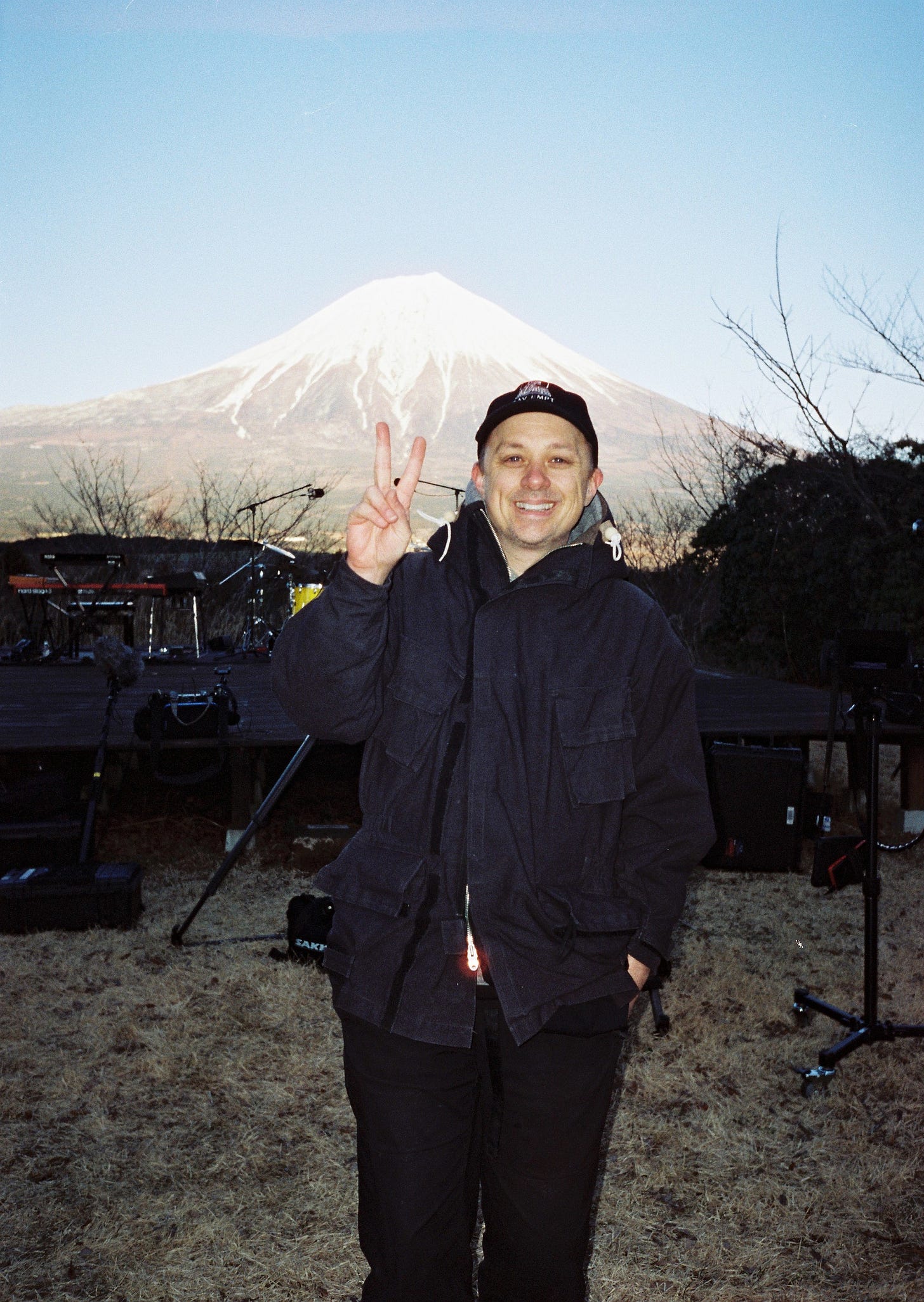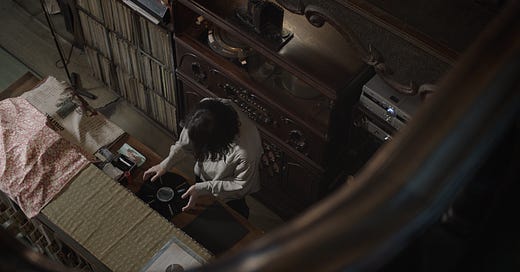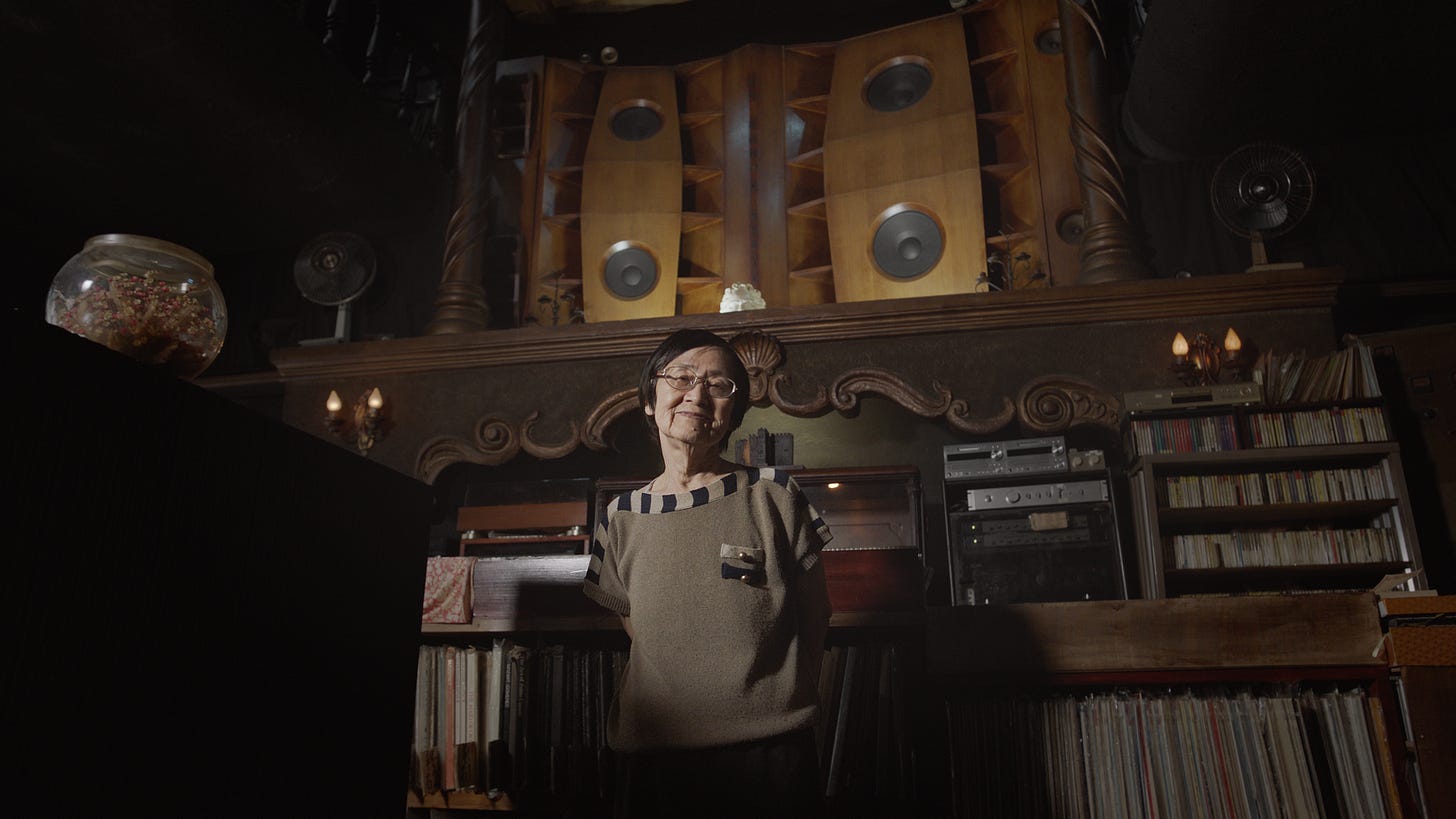Interview with 'A Century in Sound' Director Nick Dwyer (Part 1)
Nick Dwyer on A Century in Sound, a documentary film series about Japan’s deep listening culture & the new wave of jazz kissas
As part the Time Capsule Worldwide FM takeover last October, Euan McGinty and Ayana Homma sat down with Nick Dwyer—filmmaker, and creator of A Century in Sound—to discuss Japan’s deep listening culture, the evolution of jazz kissā, and how his decade-long journey has shaped the series. From the legacy of meikyoku kissā to the new wave of young café owners redefining the tradition, Nick shares his insights on what makes these spaces so unique.
Euan: I've seen the first two episodes of A Century in Sound and really enjoyed it, one thing I noticed was you didn't just focus on the speakers or the aesthetic of the space necessarily, but you really made an effort to capture the personality of the owner and how that puts an imprint on the space itself.
You said it's been a nine year journey. How did your vision evolve in the filmmaking process? Was there a direction you thought it'd go in initially, and then having captured the footage and met the people, did it take it in a different direction do you think?
Nick: Yeah, absolutely that. I mean, it'll be 10 years at the end of this year. 2014 I was in Tokyo, working with the Red Bull Music Academy. We made a documentary series about the history of Japanese video game music called Digging in the Carts. After that project had finished and the academy had finished, in the same week I stumbled into Café Lion (which is the first episode), and I was just so blown away by the culture, the immediate impressions, the speakers. I was blown away by the fact that these were establishments that were built for the primary function of listening, which at that point in my life was something that I felt personally was missing.
When I first started to kind of sit down to write it [A Century in Sound] and start to explore it more, it was kind of more about the culture itself – this idea of how the art of listening has somewhat been lost and that these places, and culture exists in Japan where they're built for you to go and do nothing but listen.
But as soon as I started spending more time in these places, and as soon as I started meeting the owners, I realised, first and foremost, that the culture only existed in Japan as a result of a very unique set of circumstances and a very unique history that happened in the 20th century, that only happened in Japan. And in order to tell the story of these places, you needed to tell that story. And that goes right from the 1920s, 1926 actually, which is the first year of Shōwa, Emperor Hirohito – that is the first year that the culture began. The evolution of classical music cafes (meikyoku kissā), jazz kissā, and all the twists and turns of history that happened in Tokyo birthed this culture.
So that was one thing. The series had to be just as much about the culture and the places as it was about the history. But then most importantly, about the people. Obviously it's the people and their personal stories that give you that history that the series moves through. It started off as one thing, but very quickly it became what it is now.
Ayana: You've been mentioning about how this culture is a lot to do with listening, very deep listening. After coming to London, I’ve noticed that people are pretty chatty on the dancefloor! I think that has to do with the culture as well, British culture is a lot to do with socializing.
When looking back in my own culture, I was like, oh this deep listening is a really important part of it. At Naru, nobody talks during the set when people are performing, and it's kind of scary because everybody's listening to the music. Maybe this has to do with the Japanese personality as well, because, in trains, nobody talks, it's rude to be on the phone etc. How much do you think this sensibility is tied in with deep listening?
Nick: You know, I need to point out, I'm from New Zealand. Japanese culture has been a big part of my life since I was very young. I will never pretend to be like, oh, I've cracked the code, I've figured out Japanese culture. I think that's best for Japanese people to be the ones that say that.
But what I will say, as an observer, is that I have come across in my time here, a level of respect for outside culture that I haven't experienced anywhere on the planet.
And you know, there's a few things that you mentioned Ayana, just the respect that people have for each other. There's obviously these centuries old concepts of Wa and harmony, and you know, people just have respect for each other, everything works. And that just feels like it's built into the culture here.
One thing that moved me was in a movie theatre, you know, in the West when the credits roll, everyone just leaves straight away. They're like, I gotta go to the toilet, or I need to get on my phone, no one stays at the end of the credits. Going to the movies in Japan everyone stays until the very end, because they just have respect for all the people that worked really, really hard on that film. And the end of the film is at the very end of the credits rolling, not at the end of the last scene. That really moved me.
Obviously, when you go to music performances at first they can be a little scary, because no one's making a sound. Then, once the last note has completed all of its resonance, that is when you'll hear hand claps. I just think it's really beautiful.
It seems to me that Japanese people, from the moment that Japan opened up to the world in the 19th century, have had a curiosity, fascination and a deep respect and love for outside culture. And when Japanese people decide that they are into something, they want to get deep into it and they want to get inside it and they show it as much respect as they can, and I think that's a really, really wonderful thing.

Ayana: Is there a new generation of ongaku kissā owners keeping this culture going? How is it evolving?
Nick: It's a really good question because I think that a lot of people around the world, have this idea that it's somewhat of a dying culture. I think a lot of people see these images of jazz kissā and they see images of an empty space and, you know, an older jazz fan or older Japanese audiophile, who's been running their establishment since the 1960s. But the reality is, the culture is in such good hands. A lot of the places, the older places, have successions in place. Sometimes it's family, sometimes it's the regulars who will take over these legendary establishments.
But the most exciting thing for me, especially, where I live, which is Shimokitazawa, is that there is an all new generation of young people who are starting their own kind of jazz kissā or ongaku kissā. So a lot of this new generation are staying true to some of the philosophies of old, like some of them, they prefer you not to talk, they're places for focused listening.
A lot of these people are in their thirties or forties, some of them are even in their twenties. This kind of mimics the same way that the culture kind of began in the 50s and 60s, it was young people, this was young people in their 20s starting the culture, so it's got a youthful energy to it. Again, that youthful energy is attracting a youthful energy. And there's a lot of young people engaging with this culture now.
But what they're all doing is putting their own spin on things. One of my favourite, jazz kissā that I go to regularly in my neighbourhood is called Tonlist. Tonlist means music in Icelandic. And it was started by this incredible guy, Uno-san.
I think he's just turned 40. So he's still relatively young, but he's playing modern jazz records as in records from this year, from last year, he's playing modern classical records, a lot of ambient records, records by artists like Gigi Masin and, you get odd things from Eno or Hassell - they're just really incredible places now for music discovery.
Masako is another one of my favourite places, really incredible youthful energy, and the record selections are just so wide open. They just play great listening music, music that deserves to be listened to, and that could be anything.
So yeah, it's not just jazz, it's young, it's vibrant, and there's a really incredible culture happening, with young people engaging with this culture in Japan right now.
(To be continued in Part 2)







